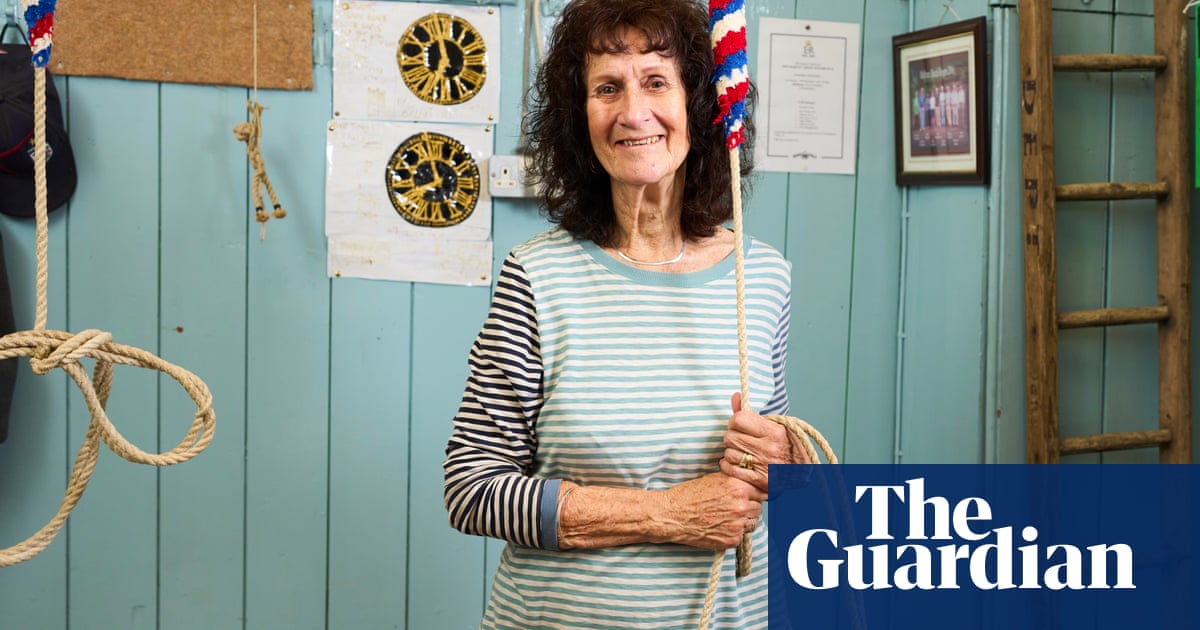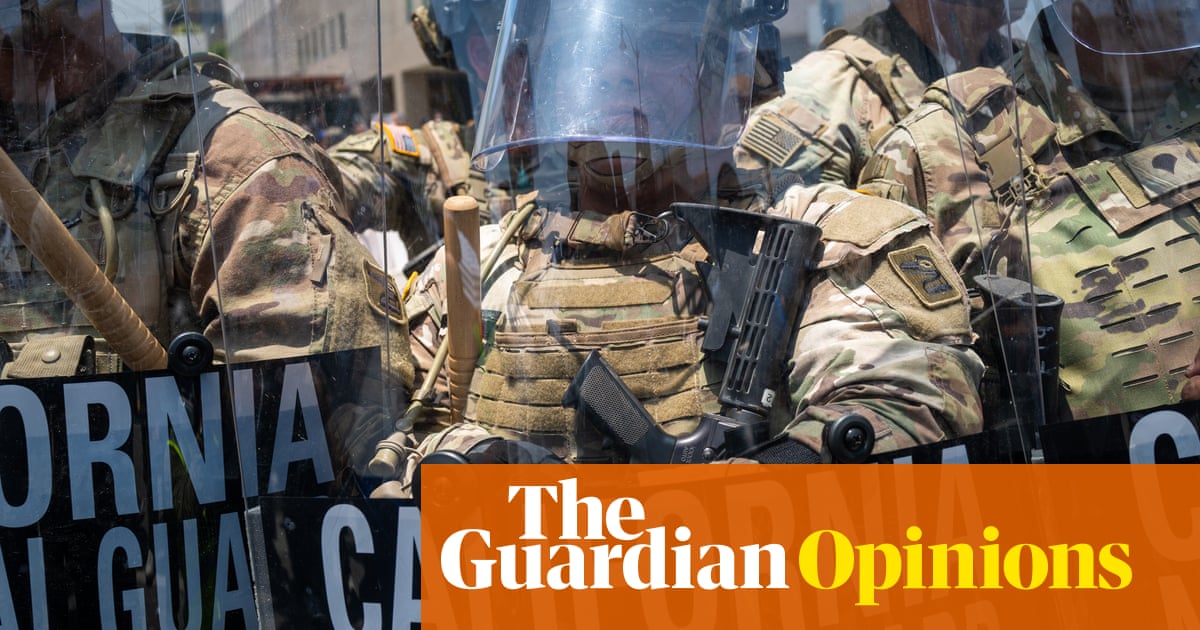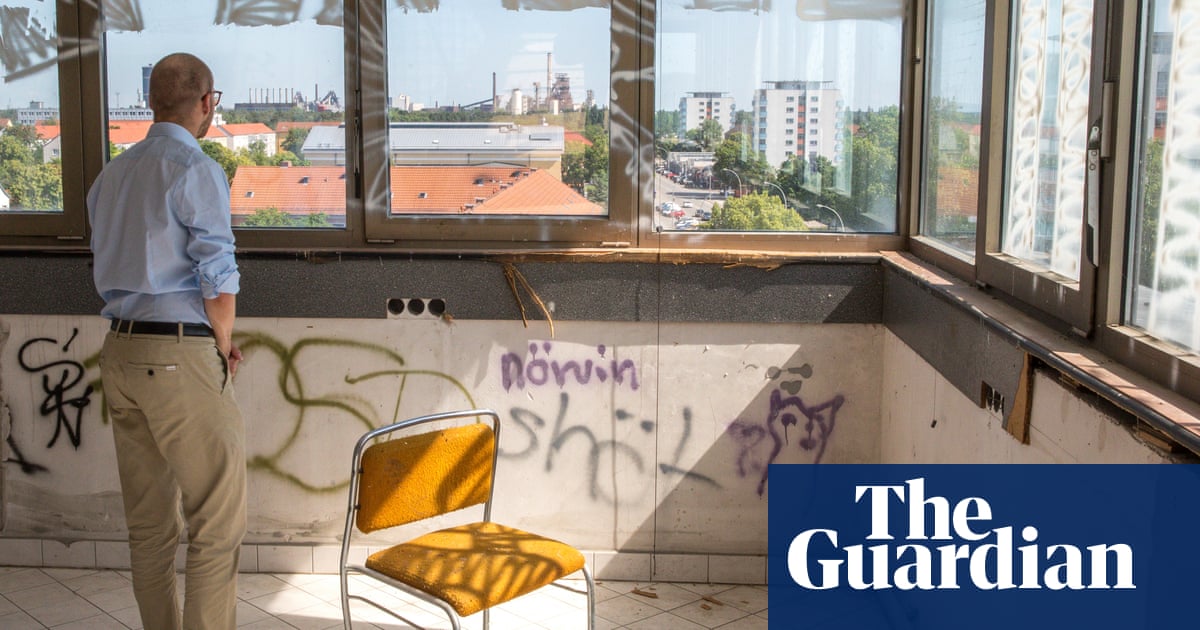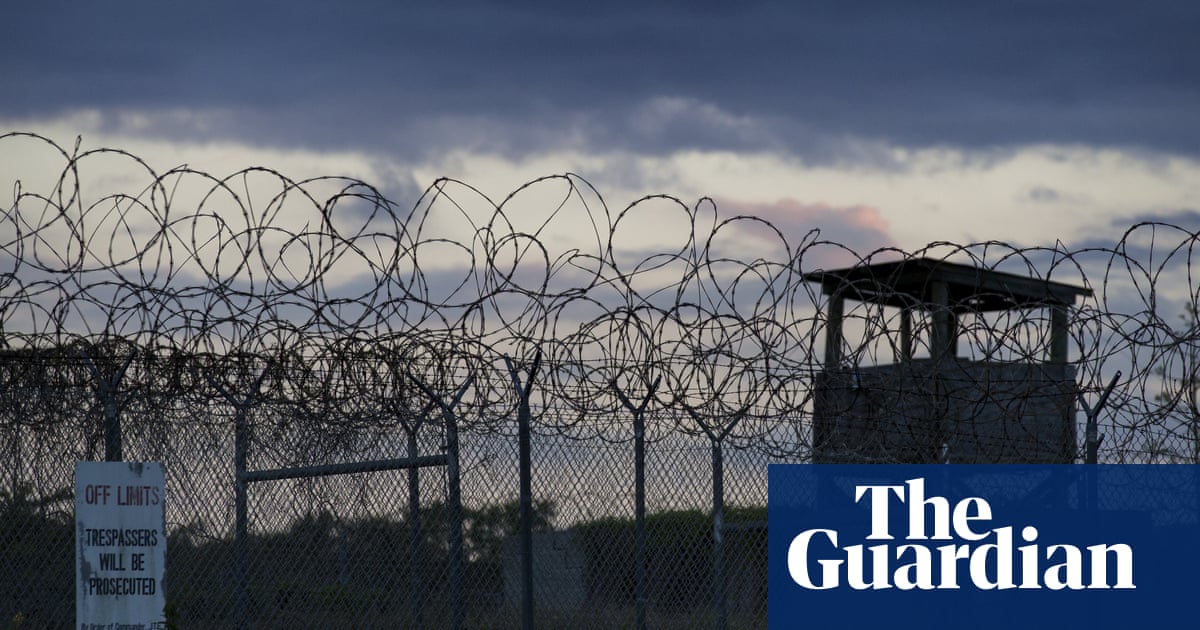When I think of German democracy, I think of the Larsen B ice shelf: a vast Antarctic structure that remained stable for 10,000 years until – in just over a month, to the horror of shocked onlookers – it collapsed catastrophically.
This weekend, Germany is going to the polls. The coalition led by the centre-left Social Democratic party (SPD), born in hope, has fallen apart, thanks in no small measure to the continual attempts at sabotage by the Free Democratic party (FDP), its most junior member. That last successful effort resulted in the dissolution of the government.
Yet the other two coalition parties are also culpable – the Greens, who failed to articulate a compelling enough vision for a future with clean energy, and the SPD itself, whose vote has tumbled by 10% and whose leader, Olaf Scholz, the chancellor, has mostly been as invisible as his predecessor, Angela Merkel, was imposing.
Having lived and worked in Germany for 10 years, I have long understood Merkel’s tenure as an aberration in national politics. For all her flaws, she took a step of rare and historic bravery, welcoming a million Syrian immigrants as they fled a dictatorship that was bombing their schools and hospitals. Yet this move was one from which her own party, the Christian Democratic Union (CDU), now cannot distance itself quickly enough. It is striking that, when Bashar al-Assad was overthrown late last year, the first instinct of Germany’s newspapers and politicians was not to celebrate Merkel’s role in saving Syrian lives. Instead, it was to try to work out how quickly all those Syrians could now go home.
The poll-leading CDU, meanwhile, has generally responded to the country’s greatest challenges with pettiness or spite. Kai Wegner, when elected mayor of a capital city staggering beneath the weight of overpriced housing, chose not to pick a fight with property developers but to fuel a pointless culture war, pledging never to use gender-neutral language when in office.
Even though the country is facing a severe shortage of migrant workers, the CDU’s leader, Friedrich Merz, the chancellor-in-waiting, seems to take every available opportunity to alienate the same people he is trying to attract to his nation. Infamously, in September 2023, he remarked that an area of Berlin with a large migrant population “was not Germany”. This was, even for him, a low point.
If there is room for optimism, we can find it in Die Linke, which has surged in the polls thanks to a campaign that has focused on citizens’ everyday difficulties. While the Greens and the CDU have mostly settled for positive yet vague slogans, and the far right has gone for the tone of returning emperors, the far left Die Linke has taken the most trouble to actually ask people about their household bills and to suggest taxes on wealth. This novel concept could see them win enough votes to return to the Bundestag.
But the campaign has been dominated by the far-right Alternative for Germany (AfD), whose rhetoric has been shamefully and enthusiastically adopted by their supposedly more enlightened peers, and whose ascent has been accompanied by an explosion of violence. In late 2023, senior party members were caught plotting the violent deportation of millions of people: not only migrants, refugees and asylum seekers but anyone they did not consider to be sufficiently German, including German citizens born in Germany.
Fearing a public backlash, these politicians and their wealthy backers were so secretive that they communicated with each other only by letter. They need not have been so worried. Though their poll numbers dipped a little in the aftermath, they now stand at about 20%, as the second most popular party, with those plans for mass violence against migrants – euphemistically dubbed “remigration” – at the centre of their campaign.
Yet the far right’s xenophobia is not at the fringes of German society: it can be found in voices at its very centre. The loudest such voice is Merz. After two fatal attacks by migrants on their fellow citizens – the first by an “anti-Islam activist” who drove a car into a Christmas market in Magdeburg, killing five, and the second a knife attack by a former Afghan asylum seeker in Aschaffenburg, killing two – Merz seized his moment. Instead of calling for the enforcement of existing and entirely adequate migration policies, he did something that no German political party had done since the 1930s: he formed an alliance on a crucial vote with the far right, in order to push through a migration bill that was contrary to EU law. His efforts failed, but the damage was done. Merz, meanwhile, has only escalated his rhetoric, making the baseless claim that every day in Germany asylum seekers are perpetrating gang rapes. With language like this, a coalition with the AfD is not as far away as pundits think or hope it is – just look at all the seemingly eternal norms that have been undone in no time at all. The cracks are swiftly spreading throughout the German iceberg.
after newsletter promotion
Reflecting on Merz’s recent words and actions, and on the widespread acceptance of them, I feel that we are living in what the technologist and writer Emily F Gorcenski called “the time of cowards”, an era when too many people see injustice and turn away. For all the hundreds of thousands who have admirably taken to German streets or debating chambers to protest against the dangers of authoritarian rule, there are far too many who have remained silent, whether at their dinner tables, in their workplaces or their group chats.
Recently I spoke to Jennifer Kamau, who works for International Women’s Space, a Berlin-based NGO that protects the rights of migrants and refugees. She sounded so worried that days later I was still pondering her words: in particular, the loathing of migrants and refugees she sees across the political spectrum, even in some traditionally progressive spaces.
“We don’t even know who to work with,” Kamau said. “Everybody that I am with is feeling afraid. There is a certain energy that you feel when you enter a train, even in Berlin… You see the hostility.” If there is not a concerted effort to present a positive vision of immigration, she fears the very worst. “The atmosphere is so pregnant with arrogance and hate,” she said. “This hate is too big. They can’t hide it any more.”
Musa Okwonga is an author and football podcaster based in Berlin
-
Do you have an opinion on the issues raised in this article? If you would like to submit a letter of up to 250 words to be considered for publication, email it to us at [email protected]

 3 months ago
47
3 months ago
47

















































